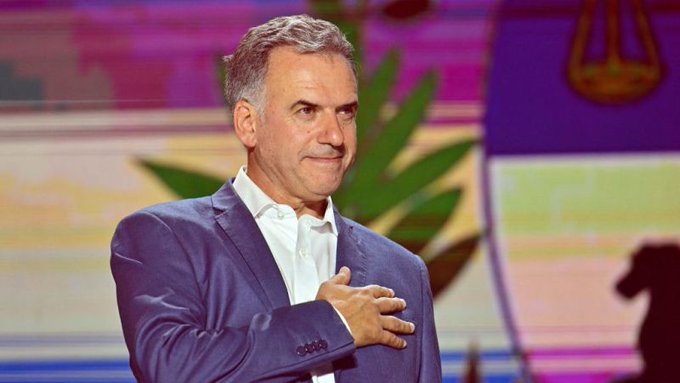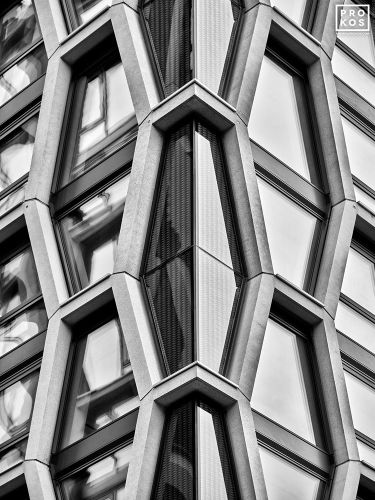Yamandú Orsi, candidate of the Frente Amplio and successor of former president José “Pepe” Mujica, became the third left-wing president in the history of Uruguay on Sunday night (11/24/2024) and will succeed Luis Lacalle on March 1, 2025. Pou, from the conservative National Party.
According to the official results of the Electoral Court, with 94.44% of the count, Orsi obtained 49.66% of the votes, against the 46.06% obtained by his rival, the ruling party Álvaro Delgado.
Shortly before the official results were known, the Uruguayan president Luis Lacalle Pou congratulated Orsi for having been elected as the new president of the South American country, after the main media published the vote projections of four pollsters that gave him as the winner of the second round of the presidential elections just two hours after the polls closed.
“I called @OrsiYamandu to congratulate him as President-elect of our country and to put myself at his command and begin the transition as soon as he understands it is pertinent,” Lacalle Pou reported on his X social network account.
Also, the official candidate Álvaro Delgado granted the victory to Orsi, in a speech in front of his supporters after knowing projections of scrutiny that give his rival the winner.
«Today the Uruguayans defined who will exercise the Presidency of the Republic. And I want to send you here, with all these coalition actors, a big hug and greetings to Yamandú Orsi,” said Delgado, surrounded by the partners of the ruling alliance that supported him in the runoff.
Lula da Silva congratulated Orsi
The president of Brazil, Luiz Inácio Lula da Silva, congratulated the candidate of the opposition Frente Amplio, Yamandú Orsi, on his victory in the presidential elections in Uruguay on Sunday night.
“I want to congratulate the Uruguayan people for holding democratic and peaceful elections and, especially, the elected president Yamandú Orsi, the Frente Amplio and my friend Pepe Mujica for today’s victory,” he wrote on social networks.
Furthermore, the Brazilian pointed out that it is a “victory for all of Latin America and the Caribbean” and that Brazil and Uruguay “will continue working together” in the Mercosur trade bloc and in other forums in favor of “fair and sustainable development, peace, and regional integration.
The vote projections made him the winner.
Before the official results were published, four pollsters gave Orsi as the winner of the runoff.
The consulting firm Cifra gave him 49.5% of the votes. Opción Consultores pointed out that Orsi had achieved 48.7% of the votes, while the data from Equipos Consultores and Usina de Percepción Ciudadana also projected the Frente Amplio candidate as the winner.
Orsi, a 57-year-old history teacher from the opposition Frente Amplio, faced Álvaro Delgado, a 55-year-old veterinarian from the National Party that led the ruling alliance.
The winner will succeed President Luis Lacalle Pou, with an approval level close to 50% but constitutionally prevented from immediate re-election.
The voting centers closed at 7:30 p.m. (11:30 p.m. CET).
Orsi arrived with an advantage in the polls
Orsi came into the vote at the head of all previous polls, but closely followed by Delgado, by a difference that is within the margins of error.
On October 27, Orsi received 43.9% of the votes, well ahead of Delgado (26.7%), although the latter now has the support of all the parties in the ruling coalition, which together obtained 47%. 7%.
Uruguay went to the polls as the most solid democracy in Latin America, with a high per capita income and lower levels of poverty and inequality compared to the rest of the region.
The high cost of living and crime concentrate the concerns of voters in this agricultural country, with 3.4 million inhabitants and 12 million heads of livestock.
More than 2.7 million Uruguayans were eligible to vote in a runoff that is won by a simple majority. Suffrage is mandatory and there is no consular vote.
#leftist #Yamandú #Orsi #won #presidential #elections #Uruguay #Diario #Página
* **What are the key social and economic factors that contributed to the victory of Yamandú Orsi and the return of the left to power in Uruguay, as discussed in the interview?**
## Interview: Uruguay’s Left Returns to Power - A Post-Election Analysis
**Introduction:**
Welcome to World Today News. Tonight, we’re sitting down with two esteemed guests to unpack the historic outcome of Uruguay’s presidential elections. Joining us tonight are Dr. Maria Rodríguez, a renowned political scientist specializing in South American politics, and Ricardo González, a leading Uruguayan economist. Thank you both for joining us.
**Section 1: The Victory and its Implications**
**Interviewer:** Dr. Rodríguez, Yamandú Orsi’s victory marks the return of the left to power in Uruguay. What factors contributed to this outcome, and what does it signify for the country’s political landscape moving forward?
**Dr. María Rodríguez:**
**Interviewer:** Mr. González, how do you anticipate this change in leadership will affect Uruguay’s economy, especially considering the concerns about the cost of living and crime highlighted in the article?
**Ricardo González:**
**Section 2: Latin American Dynamics**
**Interviewer:** Dr. Rodríguez, Uruguay’s elections drew congratulations from regional leaders like Lula da Silva, who hailed it as a “victory for all of Latin America.” What broader trends in Latin American politics might this victory reflect?
**Dr. María Rodríguez:**
**Interviewer:** Mr. González, how might this shift in Uruguay’s political landscape affect its relationship with its neighbors, particularly within the framework of Mercosur?
**Ricardo González:**
**Section 3: The Future of Uruguayan Democracy**
**Interviewer:** Dr. Rodríguez, Uruguay is often lauded for its robust democratic tradition. How significant is this election within the context of Uruguay’s commitment to democratic values and principles?
**Dr. Rodríguez:**
**Interviewer:** Mr. González, looking ahead, what challenges and opportunities do you see for Uruguay, considering its strong democratic foundation and the social and economic issues highlighted in the article?
**Ricardo González:**
**Conclusion:**
**Interviewer:** Thank you, Dr. Rodríguez and Mr. González, for sharing your invaluable insights on these crucial developments in Uruguay. We hope this discussion sheds light on the complexities of this historic election and its potential ramifications for the future of the country.


